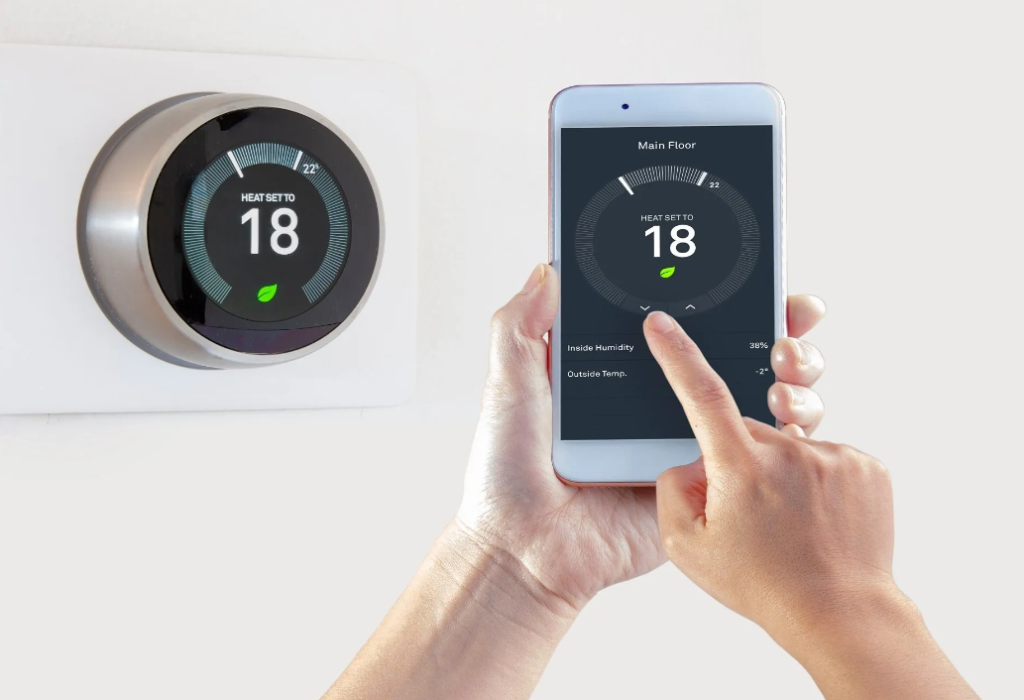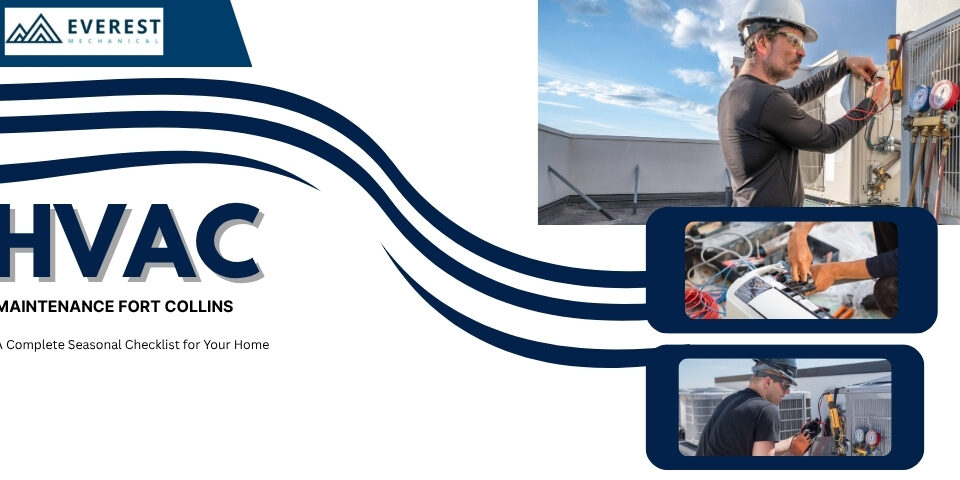- Servicing areas in and around: Estes Park, Longmont, Boulder, Arvada, Fort Collins, Denver, Loveland, and Lyons
- 8883880970
Smart thermostats and Geofencing for advanced temperature control

A Complete Furnace Maintenance Guide for a Comfortable Home in Winter
January 1, 2024
Tips and Tricks for Saving Energy Bills in Winter
January 18, 2024Say Goodbye to Wasted Energy and Hello to Personalized Comfort, The Perfect Blend of Smart Thermostats and Geofencing

Imagine a world where your home seamlessly adapts to your every wish, anticipating your arrival with a perfectly pre-heated environment or gently lowering the temperature as you walk out the door. No more chilly landings or uncomfortably hot afternoons upon returning – just personalized comfort and effortless energy savings. This isn’t a futuristic fantasy, it’s the reality existing right now, thanks to the dynamic duo of smart thermostats and geofencing technology.
As smart home technology is evolving faster than ever, smart thermostats have emerged as a game-changer in climate control. These intelligent devices go beyond the basic function of regulating temperature; they offer a range of features designed to enhance energy efficiency, convenience, and overall comfort. The integration of geofencing technology takes this to the next level, allowing for automated adjustments based on the occupants’ location.
In this article, we explore the use of smart thermostats, understand the concept of geofencing, and highlight the combined potential of these innovations to revolutionize climate control.
The Rise of Smart Thermostats
Today’s smart thermostats are miniature marvels, equipped with intelligence. Forget about manually setting the schedules, these sleek devices learn your daily routines and preferences, adjusting temperatures automatically to create a personalized thermal environment. They adapt to the changing seasons, integrating weather forecasts to ensure your home is always at the perfect temperature, not a degree wasted. And for the ultimate convenience, you can control everything from your smartphone, tablet, or even with the power of your voice.
More Than Just Temperature Control
Traditional thermostats were limited to manual temperature adjustments. Smart thermostats, however, offer a ton of features beyond basic temperature control. These devices are equipped with sensors, learning algorithms, and connectivity options, transforming them into intelligent hubs for climate regulation.
Self-learning Ability
One of the key advantages of smart thermostats is their ability to learn and adapt. They can analyze users’ habits, understand daily routines, and even adjust settings based on weather forecasts. This learning capability optimizes energy usage, making the heating and cooling processes more efficient over time.
Control them remotely
Smart thermostats are seamlessly integrated into the era of connected homes. Users can control their devices remotely through dedicated smartphone apps, voice commands via virtual assistants like Alexa or Google Assistant, and integration with other smart home devices. This connectivity allows for real-time adjustments and monitoring, providing users with unprecedented control over their home’s climate.
Types of Smart Thermostats
Smart thermostats come in various types, including Wi-Fi, Bluetooth, and Z-Wave. Wi-Fi thermostats, being the most popular, enable remote control and monitoring through an internet connection. Bluetooth models are suitable for short-range communication within the home, while Z-Wave devices offer compatibility with a wide range of smart home products.
Integrating Smart Thermostats with Other Smart Home Systems
The true power of smart thermostats lies in their ability to integrate with other smart home systems. These devices can communicate with lighting systems, security cameras, and even smart blinds. This integration allows for a holistic approach to climate control, creating an environment that responds intelligently to various factors.
Advanced Geofencing technology
What is Geofencing?
Geofencing is a location-based technology that uses GPS, Wi-Fi, or cellular data to create virtual boundaries around a specific geographical area. In the context of smart thermostats, geofencing allows the device to detect when occupants enter or leave the predefined zone, triggering automated adjustments to the temperature settings.
Automatic Home and Away Modes:
Geofencing technology enables smart thermostats to automatically switch between home and away modes based on the occupants’ location. When users leave the designated area, the thermostat enters an energy-saving mode, adjusting the temperature to conserve energy. Upon returning, it seamlessly transitions back to the desired comfort level.
No More Wasted Energy
One of the most significant benefits of geofencing in climate control is eliminating wasted energy. By automatically adjusting the temperature when the house is unoccupied, geofencing ensures that heating or cooling systems are not running unnecessarily, leading to substantial energy savings and reduced utility bills.
Benefits Of Integrating Thermostat And Geofencing Technology
When integrated with other smart home appliances, the smart thermostat and geofencing technology brings in a ton of benefits to homeowners.
- Increases Energy Efficiency
The synergy between smart thermostats and geofencing results in peak energy efficiency. With geofencing detecting occupants’ presence and adjusting the thermostat accordingly, unnecessary energy consumption is minimized. This leads to significant cost savings and a reduced environmental impact.
- Personalized Comfort
Geofencing not only contributes to energy efficiency but also enhances personal comfort. Imagine arriving home to a pre-heated or pre-cooled environment, tailored to your preferences. Geofencing ensures that your living space is at the perfect temperature when you walk through the door, offering a seamless and comfortable experience.
- Improved Indoor Air Quality
The benefits extend beyond mere energy savings. Smart thermostats, coupled with geofencing, contribute to improved indoor air quality by ensuring optimal ventilation when needed. Additionally, the extended lifespan of HVAC systems is a result of reduced strain due to more efficient operation.
Advanced Features of These Technical Equipment
Geofencing Features
Recent advancements in geofencing technology offer advanced features that further enhance climate control. Customized zones allow users to define specific areas within the home for more precise temperature adjustments. Multi-user profiles enable the system to recognize and adapt to the preferences of different household members.
Use of motion detection to enhance performance
Integration with other sensors, such as motion detectors and smart plugs, adds an extra layer of intelligence to geofencing-enabled smart thermostats. Motion detectors can sense activity in specific areas, prompting adjustments based on real-time occupancy. Smart plugs can control additional appliances, ensuring a comprehensive approach to energy management.
The Future of Climate Control
Looking ahead, the future of climate control involves even more sophisticated technologies. AI-powered learning algorithms will enable smart thermostats to adapt to users’ preferences with unparalleled accuracy. Predictive adjustments based on weather forecasts and historical data will further optimize energy usage, providing a truly intelligent and proactive approach to climate regulation.
Role of Fort Collins HVAC service in upgrading your home
An HVAC service company plays a pivotal role in transforming your home into a smart, energy-efficient haven by seamlessly installing and upgrading smart thermostats with geofencing capabilities. These specialized professionals bring technical expertise to the table, ensuring the optimal placement and calibration of smart thermostats for maximum efficiency.
From assessing your home’s heating, ventilation, and air conditioning (HVAC) system compatibility to guiding you through the selection of the most suitable smart thermostat, these experts streamline the entire installation process. Additionally, they can seamlessly integrate geofencing technology, customizing settings to align with your lifestyle and preferences.
By entrusting the installation and upgrading process to an HVAC service in Fort Collins, homeowners not only benefit from a hassle-free experience but also enjoy the long-term advantages of energy savings, personalized comfort, and a climate control system tailored to their specific needs.
In the journey towards creating smart, efficient, and comfortable homes, the combination of smart thermostats and geofencing technology stands out as a formidable duo. The ability to control climate settings based on occupants’ location adds a layer of automation that not only saves energy but also enhances personal comfort. As consumers embrace these technologies, the potential for substantial cost savings, environmental responsibility, and an improved quality of life becomes increasingly evident.



